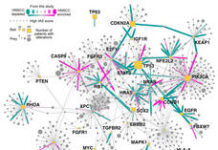In order to better prepare the future vaccination campaign among patients treated or monitored for cancer, a group of investigators from France measured the willingness for the anti-SARS-CoV-2 vaccination in this population. They conducted a cross-sectional survey among ambulatory patients in four French cancer centres and found that a majority of patients who are under active cancer care or on surveillance are willing to be vaccinated against COVID-19. The findings are published on 29 January 2021 in the Annals of Oncology.
The authors wrote in the background that patients with cancer have a variable but confirmed higher risk of severe COVID-19. They advocate that patients with cancer should be a target population for vaccination, despite that they were excluded from the first trials.
The study team conducted the cross-sectional survey with an anonymous paper questionnaire from 11 November 2020 to 12 December 2020. Among the 1244 delivered questionnaires, 999 were returned (80.3%). The responding population included 56.1% of women, and the median age was 67 (range, 18-97).
Among the respondents, 47% were under active treatment (chemo- or immunotherapy and/or radiotherapy), 40% were under surveillance and 13% were under hormonal therapy.
The majority of surveyed patients received a flu vaccine in 2020 (54.3%) or in previous years (52.2%). A very small proportion of respondents reported that had COVID-19 (2.8%).
Among the respondents, 536 (53.7%) reported their intent to be vaccinated as soon as the vaccine was available, whereas 297 (29.7%) considered they were not ready yet but likely to change their mind. However, 166 patients reported to definitively refuse vaccination (16.6%).
Among patients in favour of vaccination, the main reasons were fear about their health (76.9%), the desire to protect their relatives (49.9%), the duty for collective responsibility (45.6%) and the wish to return to a normal life (38.7%).
Among patients who were not sure about vaccination, the arguments that could convince them to be vaccinated were to obtain more information on efficacy (59.4%), on safety (50.3%), on the type of vaccine administered (35.2%) and in only 7.4% collective responsibility or return to a normal life.
Among patients who did not support vaccination, the main reasons were the lack of confidence in the scientific results (88%), fear of side effects (30%) and believing that COVID-19 is benign in only few respondents (3.6%).
The predictors for vaccination acceptance in multivariate analysis were history of influenza vaccination, male sex and age older than 69 years.
Majority of the respondents considered that the oncologists are qualified to advise the patients in terms of vaccination.
The authors underlined that the studies with stratification according to the type of treatment and the type of vaccine are a priority for the international oncology community.
Reference
Barrière J, Gal J, Hoch B, et al. Acceptance of SARS-CoV-2 vaccination among French patients with cancer: a cross-sectional survey. Annals of Oncology; Published online 29 January 2021. DOI: https://doi.org/10.1016/j.annonc.2021.01.066







